Ontolog Forum
NASA-Ontolog-KMWG OKMDS mini-series Session-05 - Thu 20-March-2008
- Session Title: Organizing Science Knowledge for Discovery at NASA
- Session Chair: Ms. Jeanne Holm (NASA/JPL) & Mr. Andrew Schain (NASA/HQ)
- Invited Speakers: Dr. Richard Keller (NASA/ARC), Dr. Robert Raskin (NASA/JPL), and Mr. Ralph Hodgson (NASA - Constellation Program; TopQuadrant)
- Archive: slides: 1-Keller ... 2-Raskin ... 3-Hodgson & audio recording of the session (mp3)
- Venue:
- Offered in real-time as an augmented conference call (with slide presentation through VNC shared screen service), and in
- Virtual World: Location in Second Life: NASA/JPL's Explorer Island - http://slurl.com/secondlife/Explorer%20Island/198/208/22
- session can also be accessed asynchronously from our downloadable archive (slides & audio), podcast or telephone playback.
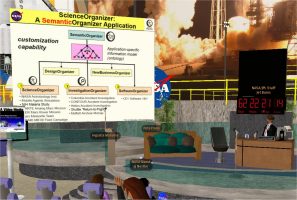
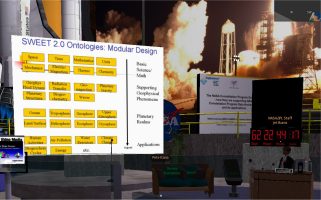
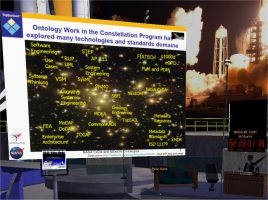
From the SL virtual world event: screenshot-01 screenshot-02 screenshot-03
(click on above links to view the full size images) . . . . . .
Background
This "Ontology in Knowledge Management and Decision Support (OKMDS)" mini-series is a collaboration between NASA, Ontolog and the (US) Federal Knowledge Management Working Group (KMWG) and is co-organized by a team of individuals from various related communities passionate about creating the opportunity for an inter-community, collaborative exploration of the intersection between Ontology, Knowledge Management and Decision Support, that could eventually lead us toward "Better Decision Making."
The mini-series will span a period of about six months (Nov-2007 to May-2008), during which we will be featuring Talks, Panel Discussions and Online Discourse on pertinent issues. We expect all the talks and panel discussion events to be offered in both 'real world' (augmented conference calls) and 'virtual world' (Second Life) settings.
Refer to details about this mini-series at the OKMDS project homepage at: http://ontolog.cim3.net/cgi-bin/wiki.pl?OKMDS
Agenda & Proceedings: OKMDS Mini-series Launch Meeting
- Session Format: this is a virtual session conducted over an augmented conference call. This virtual event is also featured concurrently at the NASA/JPL Explorer Island in the "Second Life" virtual world settings.
- Agenda:
- 1. Opening by the Session chair - Andrew Schain
- 2. we'll go around with a self-introduction of participants (15~20 minutes) - All - we'll skip this if we have more than 25 participants (in which case, it will be best if members try to update their namesake pages on this wiki prior to the call so that everyone can get to know who's who more easily.)
- 3. Main Presentation (~30 min each) - Rich Keller, Rob Raskin & Ralph Hodgson
- 5. Q & A and Open discussion by all participants (~30 minutes) - All
- 6. Summary / Conclusion / Follow-up by the Session Chair - Andrew Schain
Title: Organizing Science Knowledge for Discovery
Abstracts:
- Like many organizations, NASA is challenged with trying to tie together distributed data resources, services, models, and ontologies. NASA meets this challenge with a variety of techniques and this panel discussion will highlight three key approaches in use today. - JeanneHolm
ScienceOrganizer: A semantics-based Repository for Distributed NASA Science Teams - RichKeller
- ScienceOrganizer is a Web-based collaborative knowledge and content management system developed to support distributed NASA science teams. The system provides a customizable, semantically-structured repository that stores, indexes, and cross-links scientific work products generated by differing groups of collaborating scientists. ScienceOrganizer, which was first made available to users in 2001, was one of the earliest semantic web related applications deployed within NASA. Designed originally to support scientific teams, the system has also been used to support engineering and accident investigation teams, including the Shuttle Columbia Accident Investigation Board. At its core, ScienceOrganizer employs an RDFS-like ontological representation, coupled with simple inference rules. Different parts of the ontology are used to support different project teams, with some portions widely shared across teams. The ontology serves as a basis for organizing content, for driving the user interface, and for maintaining the consistency of the stored work products. Various search mechanisms -- from full-text search through advanced semantic search -- have been implemented as part of the system. ScienceOrganizer supports email distribution lists for project teams, and features an experimental system to recognize semantic content in the email and cross-link it with stored repository content. Through its external API, SScienceOrganizer has been used to interface with scientific equipment, control scientific experiments, and automatically capture data from lab and field experiments. In this talk, I will present an overview of the ScienceOrganizer system, describing some of its features and applications.
Development of a Community Ontology for Earth System Science - RobRaskin
- An ontology captures and organizes common sense knowledge about a
domain to improve discovery and fusion of information resources. In this presentation, we describe our experiences with the development of a second generation ontology - SWEET 2.0 - that will serve as a community standard for Earth system science.
The NASA Constellation Program Ontologies - how they are supporting NASA Constellation Program Data Architecture and its applications - RalphHodgson
- The Constellation Data Architecture is a model-based framework that uses the NASA Exploration Initiative Ontology Models ([[NExIOM]]) ontologies and an Ontology-Based System of Registries for Metadata and Information Exchange. Building such a Data Architecture and deploying it in large organizations faces a number of challenges. The "alignment challenge" stems from how information across a large enterprise has differing underlying vocabularies and systems of designation. The "acquisition challenge" is the difficulty of acquiring, modeling, and maintaining metadata that is subject to change. The "interoperability challenge" arises from differences in administrative, governance, provenance, and associative metadata in different systems. In this talk, I describe experiences implementing an ontology-based system of registries, how ontologies are used to generate XML Schemas, controlled vocabularies and other work-products for telemetry and commanding. If there is time I will also describe the application of the registries and ontologies in ground support activities for launch control and sequencing at Kennedy Space Center.
About the Speakers
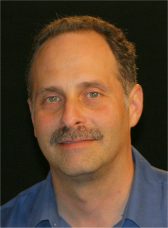 . . .
. . . 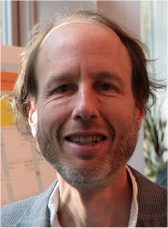 . . .
. . . 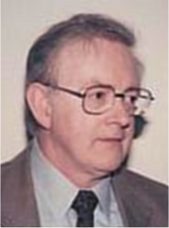
[Dr. Richard Keller] [Dr. Robert Raskin] [Mr. Ralph Hodgson]
- Rich Keller is technical lead for the Information Sharing and Integration Group within the Intelligent Systems Division at NASA Ames Research Center. For over 15 years, Keller has managed NASA research and development projects in the areas of intelligent information management and collaborative systems. He has been the principal investigator on several long-term projects with successful NASA deployments in engineering, aviation, and scientific domains. His software applications in the areas of knowledge management for distributed science and engineering workgroups and data integration for aviation safety are the subject of multiple patent applications and have resulted in successful commercial spin-offs. Keller has developed decision and work support systems for a wide range of NASA personnel, including astrobiologists, space and earth scientists, accident investigators, and air traffic safety managers. His current focus is on the development of intelligent search tools for International Space Station flight controllers. Prior to NASA, Keller worked as a research associate at Stanford University's Knowledge Systems Laboratory in the areas of model-based reasoning and large-scale knowledge base development. Dr. Keller's areas of expertise include artificial intelligence and semantic technologies, knowledge management, indexing and search systems, machine learning and knowledge acquisition, digital libraries, and collaborative systems.
- Rob Raskin is Supervisor of the Data System Engineering Group in the
JPL Instrument Software and Science Data Systems Section. He is PI of the Semantic Web for Earth and Environmental Terminology (SWEET) project to develop an upper-level ontology for Earth system science. He is Vice-President of the Earth Science Information Partner (ESIP) Federation. He holds a Ph.D. in Atmospheric Science from the University of Michigan.
- Ralph Hodgson is a co-founder and the CTO of TopQuadrant, Inc., a US-based company that specializes in semantic technology consulting, training, and tools. He combines expertise in semantic technologies with over 25 years of experience in business application development and deployment, consulting, software development, and strategic planning. Prior to starting TopQuadrant in 2001, he held executive consulting positions at IBM Global Services where he was a founding member of Portal Practice and Object Technology Practice. Prior to IBM, he was European Technology Director, founder, and Managing Director of Interactive Development Environments, which was an international CASE tools vendor. Between 1996 and 2000, he organized the OOPSLA workshops on "System Envisioning." He is a published author and a frequent speaker at conferences. Recent books he has co-authored are Adaptive Information, published by John Wiley in 2004, and Capability Cases: A Solution Envisioning Approach, published by Addison-Wesley in July 2005.
Resources
- Our panel's prepared slides can be accessed by pointing your web browsers to each of the links below (the speaker will prompt you to advance the slides as appropriate):
- 1-Keller - http://ontolog.cim3.net/file/work/OKMDS/2008-03-20_Organizing-Science-for-Discovery-at-NASA/ScienceOrganizer--RichKeller_20080320.pdf
- 2-Raskin - http://ontolog.cim3.net/file/work/OKMDS/2008-03-20_Organizing-Science-for-Discovery-at-NASA/SWEET--RobRaskin_20080320.ppt
- 3-Hodgson - http://ontolog.cim3.net/file/work/OKMDS/2008-03-20_Organizing-Science-for-Discovery-at-NASA/NASA-Constellation-Program-Ontologies--RalphHodgson_20080320.pdf
- additional resources:
- (for the panelists: please post additional pertinent resources here ...)
Audio Recording of this Session
- To download the audio recording of the session, click here
- the playback of the audio files require the proper setup, and an MP3 compatible player on your computer.
- Conference Date and Time: 20-Mar-2008 10:39am~12:45pm PST
- Duration of Recording: 2 Hour 5 Minutes
- Recording File Size: 14.3 MB (in mp3 format)
- Telephone Playback
- Prior to the Expiration Date of 20-Apr-2008 0:00 AM PST, one can call-in and hear the telephone playback of the session.
- Playback Dial-in Number: (long distance costs apply)
- Austria +0820 4000 1576
- Belgium: +070 35 9990
- France: +0826 100 279
- Germany: +01805 00 7641
- Ireland: +0818 270 036
- Italy: +0848 390 177
- Netherlands +0870 001 933
- Spain +0902 886 053
- Switzerland: +0848 560 197
- UK: +0870 738 0768
- US: +1 605 475 8599
- Skype: +990008271111 (free computer-to-computer call)
- non-Skype callers from other countries can dial into either the US or UK number for the playback (long distance costs apply)
- Conference ID: 5823120#
- Recording Reference Number: 151786#
- suggestion:
- its best that you listen to the session while having the slide presentation opened in front of you. You'll be prompted to advance slides by the speaker.
- Take a look, also, at the rich body of knowledge that this community has built together, over the years, by going through the archives of noteworthy past Ontolog events. (References on how to subscribe to our podcast can also be found there.)
For the Record ...
Conference Call Details
- Date: Thursday, March 20, 2008
- Start Time: 10:30am PDT / 1:30pm EDT / 17:30 UTC
- ref: World Clock
- Expected Call Duration: ~2.0 hours
- Dial-in Number:
- Direct call from from Skype: +990008275823120
- When calling in from a phone, use Conference ID: "5823120#"
- from a US telephone (US): +1-605-475-8590 (South Dakota, USA)
- from Europe, call:
- Austria 0820-4000-1574
- Belgium 070-35-9989
- France 0826-100-277
- Germany 01805-00-7649
- Ireland 0818-270-034
- Italy 0848-390-175
- Netherlands 0870-001-932
- Spain 0902-886-051
- Switzerland 0848-560-195
- UK 0870-738-0763
- callers from other countries please dial into either one of the US or European numbers
- Location in Second Life: Explorer Island - http://slurl.com/secondlife/Explorer%20Island/198/208/22
- Shared-screen support (VNC session) will be started 5 minutes before the call at: http://vnc2.cim3.net:5800/
- view-only password: "ontolog"
- if you plan to be logging into this shared-screen option (which the speaker may be navigating), and you are not familiar with the process, please try to call in 5 minutes before the start of the session so that we can work out the connection logistics. Help on this will generally not be available once the presentation starts.
- people behind corporate firewalls may have difficulty accessing this. If that is the case, please download the slides below and running them locally. The speaker(s) will prompt you to advance the slides during the talk.
- Please review our Virtual Session Tips and Ground Rules - see: VirtualSpeakerSessionTips
- see below regarding our in-session Q & A process
- RSVP to peter.yim@cim3.com appreciated.
- This session, like all other Ontolog events, is open to the public. Information relating to this session is shared on this wiki page: http://ontolog.cim3.net/cgi-bin/wiki.pl?ConferenceCall_2008_03_20
- Please note that this session will be recorded, and the audio archive is expected to be made available as open content to our community membership and the public at-large under our prevailing open IPR policy.
Attendees
- Participants / Registered Attendees:
- Andrew Schain - session co-chair
- Rich Keller - speaker
- Rob Raskin - speaker
- Ralph Hodgson - speaker
- Charley White [SL: Jet Burns] - virtual world host
- Peter P. Yim [SL: Pete Itano] - conference call host
- Cecil Lynch
- Irma Becerra-Fernandez (Florida International University)
- Thomas Brunner (Novartis Pharmaceuticals)
- Zach Kantzes (ARES Corp., Cleveland NASA Safety Center KM Office)
- Onnalee Gomez (CDC/CCHIS/NCPHI)
- Becky Hooey (NASA/ARC; SJSU Foundation)
- Rachuri Sudarsan
- Bill Neufeld (NSF)
- Vanetta Crawford (NASA/HQ; InDyne)
- Jack Park
- Stephanie Smith (NASA/JSC-AE; LIN) [SL: Caledonia Heron]
- Naicong Li (The Redlands Institute, University of Redlands)
- Robert Coyne (TopQuadrant)
- Kathy Johnson-Throop (NASA/JSC)
- Jack Ring (Kennen Technologies)
- Ravi Sharma
- Ken Baclawski
- Nancy S. Todd (NASA/JSC-KA) [SL: Estella Nightfire]
- Harry Snow
- Susan Turnbull [SL: Sanna Sosa]
- Paul Villano (US Army)
- Elgar Pichler (Astra Zeneca)
- Susan Runco (NASA/JSC)
- Beverly McLeod (NASA/ARC)
- Daniel Mekonnen (TopQuadrant)
- Charlotte Linde (NASA/ARC)
- Rhonda Arterberrie (NASA/GRC)
- Lisa Colvin
- Frank Alvidrez
- Jack Park
- John Pinto (Raytheon)
- Doug Holmes
- Bruce Bray
- Kajal Claypool
- Bonnie Swart
- Marco Neumann
- Line Pouchard (Oak Ridge National Lab)
- Serm Kulvatunyou
-
- ... to register for participation, please add your name (plus your affiliation, if you aren't already a member of the community) above, or e-mail <peter.yim@cim3.com> so that we can reserve enough resources to support everyone's participation. ...
- Regrets:
- Jeanne Holm [SL: Devery Barrymore] - organizer/session co-chair
- Mala Mehrotra
- To participate in the online discourse to further explore the OKMDS subject matter, please subscribe to our open archived discussion forum by:
- sending a blank e-mail to okmds-convene-join@ontolog.cim3.net
- To be part of the conversation, it is most appropriate that you should already be a member of either the KMWG community or the Ontolog community. Read on, if you aren't already.
- For participation in KMWG (US) Federal Knowledge Management Working Group - an open forum for collaboration on issues related to government-focused knowledge management,
- join their [KMgov] distribution list by sending a blank e-mail to: kmgov-subscribe@list.jpl.nasa.gov
- For participation in Ontolog - an open, international, virtual community of practice devoted to advancing the field of ontology, ontological engineering and semantic technology, and advocating their adoption into mainstream applications and international standards,
- please refer to Ontolog membership information details at: http://ontolog.cim3.net/cgi-bin/wiki.pl?WikiHomePage#nid1J
- For participation in KMWG (US) Federal Knowledge Management Working Group - an open forum for collaboration on issues related to government-focused knowledge management,
- To subscribe to [ontolog-invitation], the Ontolog event announcement list (one doesn't necessarily have to be a community member), simply send a blank e-mail to ontolog-invitation-join@ontolog.cim3.net, and then confirm to the system generated e-mail address validation message accordingly.
Questions, Answers & Discourse
- (Unless the conference host has already muted everyone) Please mute your phone, by pressing "*2" on your phone keypad, when the talk is in progress. To un-mute, press "*3"
- If you want to speak or have questions or remarks to make, please "raise your hand (virtually)" by pressing "11" on your phone keypad. You may speak when acknowledged by the speaker or the session moderator. Test your voice and introduce yourself first before proceeding with your remarks, please.
- You can also type in your questions or comments through the browser based chat session by:
- point a separate browser tab (or window) to http://webconf.soaphub.org/conf/room and enter: Room="ontolog_20080320" and My Name="Your Own Name" (e.g. "JaneDoe")
- or point your browser to: http://webconf.soaphub.org/conf/room/ontolog_20080320
- instructions: once you got access to the page, click on the "settings" button, and identify yourself (by modifying the Name field). You can indicate that you want to ask a question verbally by clicking on the "hand" button, and wait for the moderator to call on you; or, type and send your question into the chat window at the bottom of the screen.
- For those who have further questions or remarks on the topic, please post them to the [okmds-convene] forum so that everyone in the community can benefit from the discourse. (One needs to be subscribed to this archived mailing list first before posting. See subscription details here.)

